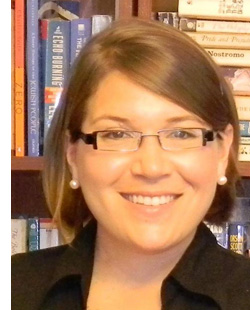
The beginning of my story is probably familiar to many of you. In late 2009, I was a University of Maryland Chemical Physics graduate student working in the Optical Tweezers (OT) Laboratory at the National Institute of Standards and Technology in Gaithersburg, Md., U.S.A. A typical day would consist of realigning the laser (turn knob, read meter, repeat), spending hours collecting data (make slide, turn knob, hit key, view screen, repeat), and partaking in the required physical functions of eating and sleeping (repeat as needed). I was the only person working in the OT lab, so the days were long and lonely. Music was my only companion.
(Looking back, I realize that I didn’t have it so bad, but at the time the combination of prolonged redundancy and solitude had started to make me crazy.)
Eventually, the day came when I decided it was time to move on. While I could have used another six months to a year to complete my Ph.D. thesis project, my desire to start a new career adventure outweighed my desire to formally finish. I started to think about the possibilities and search for positions.
After I determined that teaching was my primary goal, I received some excellent advice from my advisor: He suggested that I apply for one-year university teaching positions. He knew that, without a post-doc on my CV, it would be tough to land a tenure-track position right out of grad school. However, if I could get a year or more of university-level teaching experience under my belt, I might stand a chance of securing at least a semi-permanent position later on. Learning that I was pregnant in early 2010 heightened my determination to extreme levels.
In May of 2010, I was offered and accepted a one-year teaching position at Appalachian State University’s department of physics and astronomy. After that, things began to move very quickly. I moved to Boone, N.C., and began a new job as a visiting assistant professor in August 2010, gave birth in September, wrote a Ph.D. thesis and defended it in November, and started a new research lab of my own in December.
With the help and support of my family and my new home department, I survived those months. I was able to establish the new optical tweezers lab at Appstate thanks to an equipment loan from NIST as well as a large deposit of optics equipment from the physics and astronomy department at Appstate. Currently, three undergraduates and two master’s students are constructing and carrying out experiments there.
I am now teaching full time, juggling too many projects, and barely getting the necessary items completed. Still, I love my work and life here and I hope I can give back enough, or at least match, what I have been fortunate enough to receive.
What did I learn from this transitional experience that may benefit others? A few things:
• You can and will finish your Ph.D., although it may require extreme determination (or is it stubbornness?). That same quality will allow you to teach yourself multitudes throughout your career. Applying for and securing a job can give you a clear motivator to finish. It provides a very scary and realistic due date.
• Don’t be afraid to teach for the first year out of your Ph.D. You can go from grad school to a professorship. You will learn as you go while getting the opportunity to live in a new and interesting place and strengthen your CV.
• It’s okay to graduate without completely finishing all your projects. Open-ended experiments will give you something to work on right away when you move to the next institution.
• A good support system is critical. I recommend a spouse who is also a chef and stay-at-home dad.
• Time management is key. This means you won’t get any sleep at all during the first semester of your teaching job—whether you have a newborn or not.
• Teaching and research in physics and astronomy is the best job in the world. The colleagues are all nice sane people (OK, maybe a little kooky, but in a good way) and the hours and location are somewhat flexible (you can work real late at home if you want to). In addition, at most universities, you have your summers off to pursue research, to teach for extra pay if you choose, and to take some time for you and your family.
And when you feel like your life really sucks, just remember—at least you’re not realigning a laser … or at least not for long.
Brooke Hester (hesterbc@appstate.edu) is a lecturer in the department of physics and astronomy at Appalachian State University in Boone, N.C., U.S.A.
